They defeated Bonaparte. William Sydney Smith
Among his commanders were prominent naval commanders, including Nelson and his associate Collingwood, as well as Admirals Hood, Rodney, and Barham, whose names were and still bear many British ships fleet. One could also say that Smith was lucky with his opponents: among them were not only French and Spaniards, but also Russian admirals S. Greig and P. Chichagov, better known as Berezina's loser. But Napoleon among them, of course, occupies a special place.
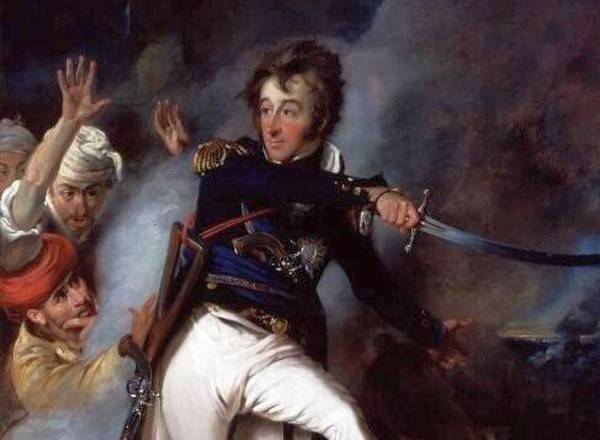
William Sydney Smith (1764-1840)
At the turn of the 18th and 19th centuries, Smith’s enterprise and courage and readiness to tackle the most impossible tasks were never appreciated. And yet it was he, at that time, the usual Commodore of the Mediterranean squadron, managed to inflict the first serious defeat to the future ruler of Europe. The naval commander, who took the defense of the seaside fortress, at this time and in this place was luckier than the best commander of France.
Sydney Smith, a native of London, son of the captain of the royal guard, was five years older than Napoleon. Among his ancestors and relatives there were quite a few officers of the fleet, and young Sydney Smith, whom everyone considered too lively and impudent, began his career in 13 years as a cabin boy on a ship that went to war in North America. There the 13 states demanded independence from the British crown. Smith fought on the 44-gun brig, which managed to capture one of the American frigates. Having taken part in a whole series of battles, Smith already in 1780 passed the exam for lieutenant, and in 18 years he took command of the sloop "Fury".
The young officer managed to live in France, visited an inspection mission in North Africa, and in 1789, he received six months leave from the Admiralty in order to go to Sweden and Russia. He did not get to Russia, but accepted the offer to serve in the Swedish fleet, forgetting that he had undertaken to not hire anyone. He was denied a request to withdraw this obligation in London, but he returned to Karlskrona, agreeing to serve King Gustav III as a volunteer.
At that time, active operations took place in the Gulf of Finland, where Smith, under the authority of the Duke of Südermanland, distinguished himself when he brought out from the Bay of Vyborg nearly a hundred small ships blocked by the Russians. He also participated in an inconclusive battle at the Kronstadt fort Krasnaya Gorka. The Swedes became aware of his service, and in fact many of those who knew Smith fought on the other side. After the truce, Smith returned to London, where in May 1792, at the request of the Swedish monarch, King George III awarded him the knightly cross of the Order of the Sword. Smith's enemies now knew about the “Swedish knight”, moreover, shortly before the award ceremony, six British naval officers were killed fighting for Russia already with the Turks.
Artist A. Bogolyubov. Sea battle at the fort of Krasnaya Gorka, 1790
Meanwhile, Smith's younger brother, John Spencer, was assigned to the embassy in Istanbul. In 1792, Sydney Smith was sent to the Turkish Sultan Selim III, and he not only visited his brother, but also examined the fortifications of the Turks on the shores of the Mediterranean and even the Black Sea. When France declared war on Britain in February 1793, Sydney Smith in Smyrna recruited about forty recalled British sailors. He restored the sunken ship at his own expense and went to Toulon, where he was awaited by his first meeting with Bonaparte, then still unknown to the Revolutionary officer.
In the raid of Toulon stood a fleet under the command of Lord Hood, who, together with the Spanish and Neapolitan allies, tried to support the anti-Kobin party. In mid-December, Bonaparte organized the famous bombardment of forts and fleets, which forced the Allies to withdraw troops. Smith volunteered to destroy those ships of the French fleet — thirty-two linear and fourteen frigates — which could not be diverted, they were in the inner harbor, near the naval arsenal. He himself had to blow up the arsenal.
Sydney Smith burns French ships in Toulon
However, only thirteen of these ships could be burned, including ten battleships. Thanks to the heroism of the galley deportees, not afraid of fire, eighteen battleships and four frigates went to the Republicans. Not too hurt and arsenal. Napoleon, in his essay on the siege of Toulon, considered it necessary to write that "this officer very badly fulfilled his duty, and the republic should be grateful to him for those very valuable items that remained in the arsenal."
In England, many were outraged by Smith’s actions, arguing that he had missed a unique chance to weaken France’s navy. But this Admiral Hood believed that he, forced to act without preparation, did everything he could, and even wanted to get Smith to be promoted. In the Admiralty, Lord Hood’s arguments were accepted and Smith was appointed commander of the new 38-gun frigate “Diamond” in the North Sea.
In December 1794, Earl Spencer, who knew Smith, became the first Lord of the Admiralty, and he asked for a new appointment from him. With a flotilla of small ships, he organized a blockade in the mouths of rivers in northern France. Right up until the spring of 1796, Smith led her very successfully, but in April of this year the French managed to cut off his flagship, who could not bypass the stony shoals near Brest. They captured Smith. There is a slightly different version of the events that led Captain Smith to the Temple Jail, according to her he simply fell under the millstones of terror.

Sydney Smith spent nearly two years in the Temple jail in Paris
Once in custody, Sydney Smith, not without reason, expected that he would be exchanged for an officer of the same rank. However, he was suspected of espionage, and Smith remained in custody for almost two years. One of Smith's cellmates - someone Tromelin associated him with the royalist Colonel Louis-Edmond Picard de Felippo, who in 1793 was also under Toulon. In February, 1798, when the order came to transfer Smith to another prison, de Felippo and Tromelin organized his escape. De Felippo, with several accomplices, disguised as gendarmes, presented the prison governor with a fake prescription of the Directory to transfer the prisoner to them. Through Rouen and Honfleur, on a rented boat, which the Royal Argo frigate intercepted already in the strait, Smith and de Felippo reached Britain.
The French comrade Smith even received the rank of colonel of the English army, and he himself became commodore and went to the East. At this time, the expedition Bonaparte was already sent to Egypt from Toulon. Sydney Smith received a team of 80-gun battleship "Tiger", and at the same time became with his brother the plenipotentiary representative of the British crown in Constantinople. Formally, his chief was Admiral Saint Vincent, but in reality in the eastern part of the Mediterranean, Rear Admiral Nelson was in charge of everything, defeating Bruez's French squadron at Aboukir.
Sydney Smith entered into a correspondence with Nelson, unknowingly encroaching on his power by the fact that he was forced to combine the role of the naval flagship with a diplomatic mission. In Constantinople, Smith had a hand in reconciliation between Russia and Turkey, he was even made a member of the sultan’s sofa, and commander of the Turkish naval and military forces on the island of Rhodes. Commodore Smith, never distinguished by low self-esteem, tried to attract part of the Russian squadron of Admiral FF Ushakov to operations off the coast of Syria, but he reasonably believed that his ships were more necessary in the Adriatic and the Ionian Islands.
Ushakov was not at all going to divide his forces for the sake of the British and noticed about Smith’s demands: “I read the demands of the British commanders by the naval forces in vain amusements of our squadron — nothing but a small friendship to us shows, they want to split us off from all real affairs and, simply say, catch flies, but that they instead take them to those places from which they try to separate us. Corfu has always been pleasant to them; they predicted themselves for it, and they wanted to postpone us under different and in vain kinds without need, or, by division, would lead us to a state of disrepair. ”
The admiral wrote that Smith was strong enough and did not need reinforcement, and noted, not without irony: "... in the disciples of Sydney Smith, I will not, but he is not ashamed to take anything from me."
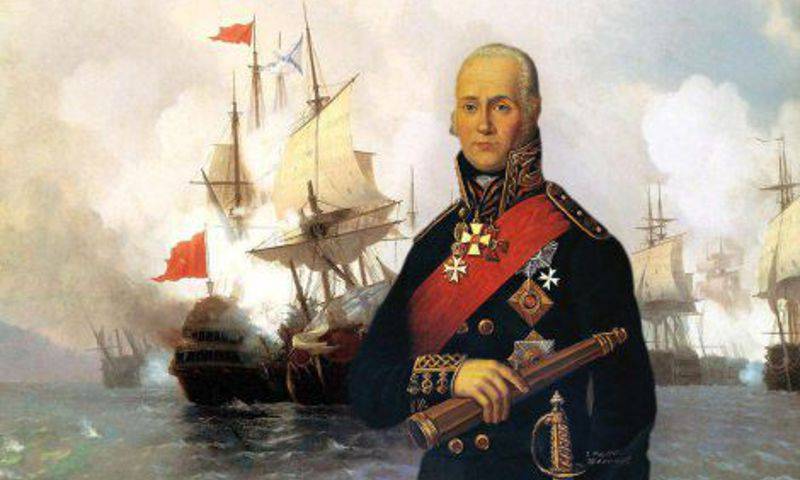
History proved: Admiral Ushakov was too large to obey not that Smith, but even Nelson
In the spring of 1799, when Bonaparte led his army to the walls of Acre, which the French had called Saint-Jean d'Acres since the time of the crusaders, under the command of Commodore Sydney Smith there were already two battleships Tigr and Tezey. When Smith received news that Bonaparte had stormed Jaffa, he immediately sent one of his ships to the port of Acre. With the beginning of the siege, Smith sent to the 4-thousandth garrison of Acre 800 English sailors to help. French siege weapons captured by his ships were also useful in defending the citadel.
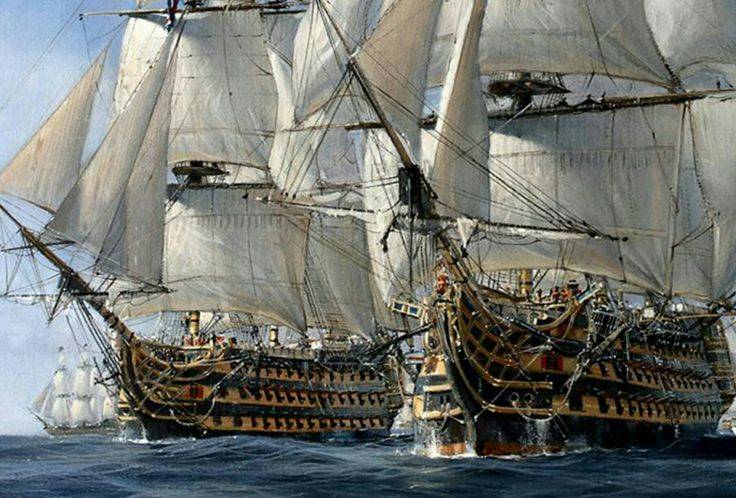
Sydney Smith's battleships were not much different from these Nelson flagships.
One of Smith’s chief assistants was his old engineer de Felippo, who made a quite modern fortification from a dilapidated fortress. Then, Akra received reinforcements from Rhodes and eventually withstood no less 12 attacks from the French, which Smith repeatedly participated personally in repelling. In the end, Bonaparte had to lift the siege of 20 in May.
The protection of Acre did not make Smith famous, moreover, then very few people imagined what kind of future awaits his French rival. However, the Commodore was thanked by both houses of the British Parliament, and he was given a pension in pounds sterling at 1000. There were awards from the sultan, and even from the Russian emperor.
When Bonaparte's army moved back to Egypt, Sydney Smith sailed from Acre to Rhodes. He was listed as the nominal commander of the Turkish troops who landed at Cape Aboukir. In a sense, we can assume that the defeat of the Turkish amphibious army Bonaparte settled with Smith for Saint-Jean d'Acres. However, it was precisely on the flagship of Sydney Smith - "Tigre" that the French officer, who was negotiating the exchange of prisoners, received news from Europe, hastened the departure of Bonaparte to France.

Artist V. Kossak. Napoleon and the Sphinx. This picture could well be called "Last Look"
After that, Smith negotiated a peace convention with Bonaparte's successor, General Kleber, who defeated the second Turkish landing in Egypt. Smith decided on a three-month truce, and then on the convention in Arish, which actually saved the results of the Egyptian expedition for France. The Egyptian army, which lost commander Kleber and reduced to a small number of 17 thousands of people, after another series of clashes with the Turks, managed to evacuate with weapons and most of the rich trophies.
Practical British for the El Arish Convention subjected Sydney Smith to a real obstruction, and for a very long time he had to wait for admiral's ranks. The tarnished reputation did not prevent, however, the popularity of the impetuous officer, who was soon elected to parliament. But already in the 1803 year, after losing the next election, Smith headed a flotilla of small ships blocking the Flemish coast. He received the rank of Colonel of the Marine Corps and even fired Congrive with French landing craft, prepared in the Boulogne camp, however, without success.
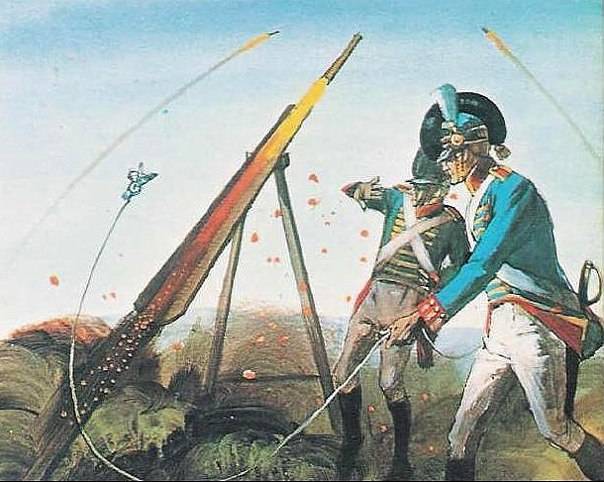
Rocket weapons during the Napoleonic Wars took the very first steps.
First Lord of the Admiralty Barham, on this occasion, even noticed that "Our friend, Sir Sydney, seems to have ... such disrespect for the statutes and rules that it is much safer to keep him under command than to allow himself to be commanded."
However, it was after Dover that Sydney Smith was finally promoted to rear admiral, and sent to the coast of Naples. He fought the French at Gaeta and the island of Capri, and Ferdinand, the king of Naples and both Sicilies, even appointed him governor of Calabria. The enterprising Smith actively supplied and strengthened the partisan war in the mountains, but the commander on land, General Moore, did not support Smith, who continued to annoy his commanders.
Sydney Smith managed to visit Constantinople, and after becoming adviser to the Portuguese king in Lisbon, he helped evacuate the August family and the remnants of the Portuguese fleet to Rio de Janeiro. There he did not lose his presence of spirit and energy, and organized the unsuccessful attack of the Portuguese on the Spaniards in Buenos Aires. In August 1809, Smith was recalled to London for a reprimand, but ... received a promotion promotion. 31 July 1810, William Sydney Smith became vice-admiral.
Following the recommendation of one of the lords of the Admiralty to "fear the heroes," Smith was kept away from big things. He was appointed deputy to Sir Edward Pellau in the Mediterranean, and he was mainly engaged in the blockade of Toulon. There he was replaced only in July 1814, when Napoleon was already on the Elbe.
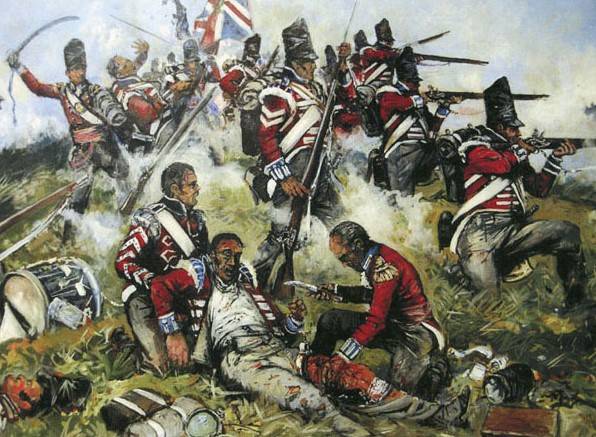
Fate brought Sydney Smith back to his old opponent, or rather, he himself looked for and found this meeting. Under Waterloo, the English commander was the Duke of Wellington, and Rear Admiral Sydney Smith from Brussels was organizing the evacuation of the wounded from the battlefield. It was not without pleasure that Wellington appointed him his representative in the Admiralty. Sydney Smith no longer fought, but still managed to get the rank of admiral in 1821 year. The last years of his life he spent, oddly enough, in Paris, where 26 died on May 1840 of the year. The first winner of Bonaparte rested in the Pere Lachaise cemetery, better known as the burial place of the heroes of the Paris Commune.
Contemporaries noted the eccentric character of Sydney Smith, recognizing his energy, intellect, rich imagination and courage. At the same time, he was a rare individualist, completely insensitive to others, for which he suffered more than once. Judging by the writings of Napoleon, the land defeat from the sailor firmly hooked him, not for nothing that he does not stint on the caustic remarks addressed to Sydney Smith, even when he gives him his due.
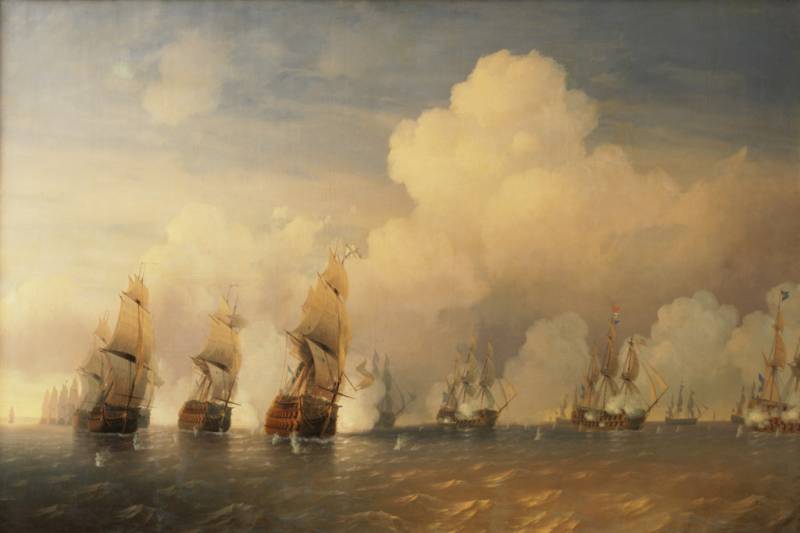
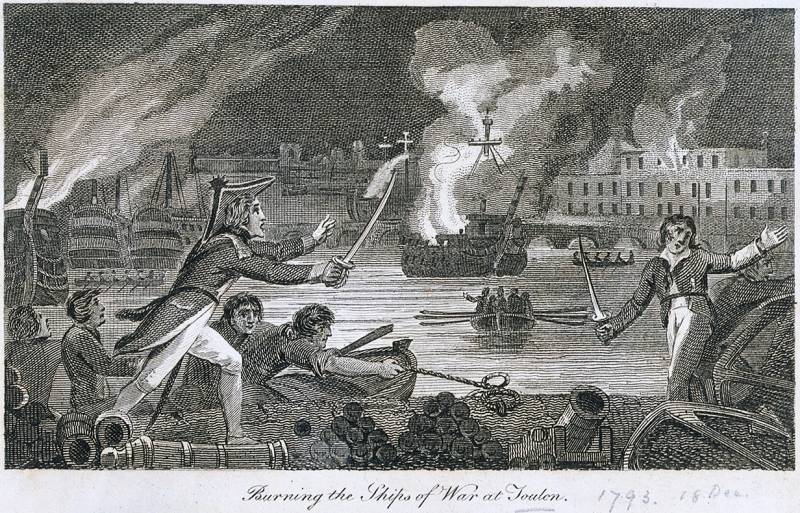
Information